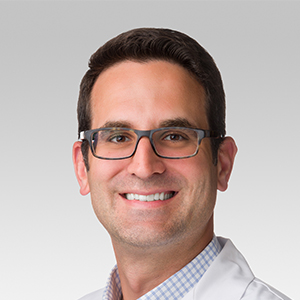Fatty Liver Disease: What to Know
A Common (and Silent) Chronic Condition
Updated May 2024
Over time, heavy drinking can lead to alcohol-related liver issues. However, liver issues can also arise in those who drink little or no alcohol. One of these issues, metabolic-dysfunction associated steatotic liver disease (MASLD), formerly known as nonalcoholic fatty liver disease (NAFLD), is a condition where extra fat accumulates in your liver.
Justin R. Boike, MD, a hepatologist at Northwestern Medicine, breaks down what you need to know about MASLD.
The Mediterranean diet has shown to be beneficial.— Justin R. Boike, MD
Understand the Disease
MASLD is very common — about 25% of adults in the U.S. have it. Research suggests that you may be more likely to develop MASLD if you:
- Have excess weight or obesity
- Are insulin resistant or have Type 2 diabetes
- Live with metabolic syndrome or have one or more traits of the syndrome including hypertension, high cholesterol, pre-diabetes or diabetes
MASLD typically does not have any symptoms. MASLD can progress to metabolic dysfunction-associated steatohepatitis (MASH), formerly known as non-alcoholic steatohepatitis (NASH), which means the condition is causing inflammation in the liver. The inflammation can cause fibrosis (scarring) and even cirrhosis. Cirrhosis can lead to liver cancer.
"In the United States, MASH is now one of the primary causes of cirrhosis and reasons for liver transplant," explains Dr. Boike. "Patients with MASH who have evidence of scarring in the liver are at risk for progression to cirrhosis."
To diagnose MASLD, your care team may use blood tests, imaging tests or a liver biopsy. These measures also help determine if the condition has progressed to MASH. Medical experts don't yet know why some people develop MASH while others do not.
Treatment Options
Nutritional changes and physical activity have shown to be an effective treatment for MASLD. Weight loss can help fight fat buildup, inflammation and fibrosis in your liver.
"General dietary recommendations include avoidance of high fructose corn syrup (such as soda and sweetened beverages) and limiting carbohydrates in the diet," says Dr. Boike. "The Mediterranean diet has also been shown to be beneficial, especially if patients have underlying metabolic syndrome."
In March 2024, the U.S. Food and Drug Administration (FDA) approved resmetirom, which is the first available medication to treat MASH with fibrosis but not yet cirrhosis. Talk to your care team about if medication is right for you.
To help prevent fat buildup in your liver, stay physically active, eat a healthy diet, maintain a healthy weight and limit alcohol to safe limits (no more than one drink a day for women* or two for men). Connect with your care team if you have a hard time with any of these — they can help you make a plan that works best for you and your health goals.
*Scientists do not always collect information from participants about gender identity. To avoid misrepresenting the results of this research, we use the same terminology as the study authors.







